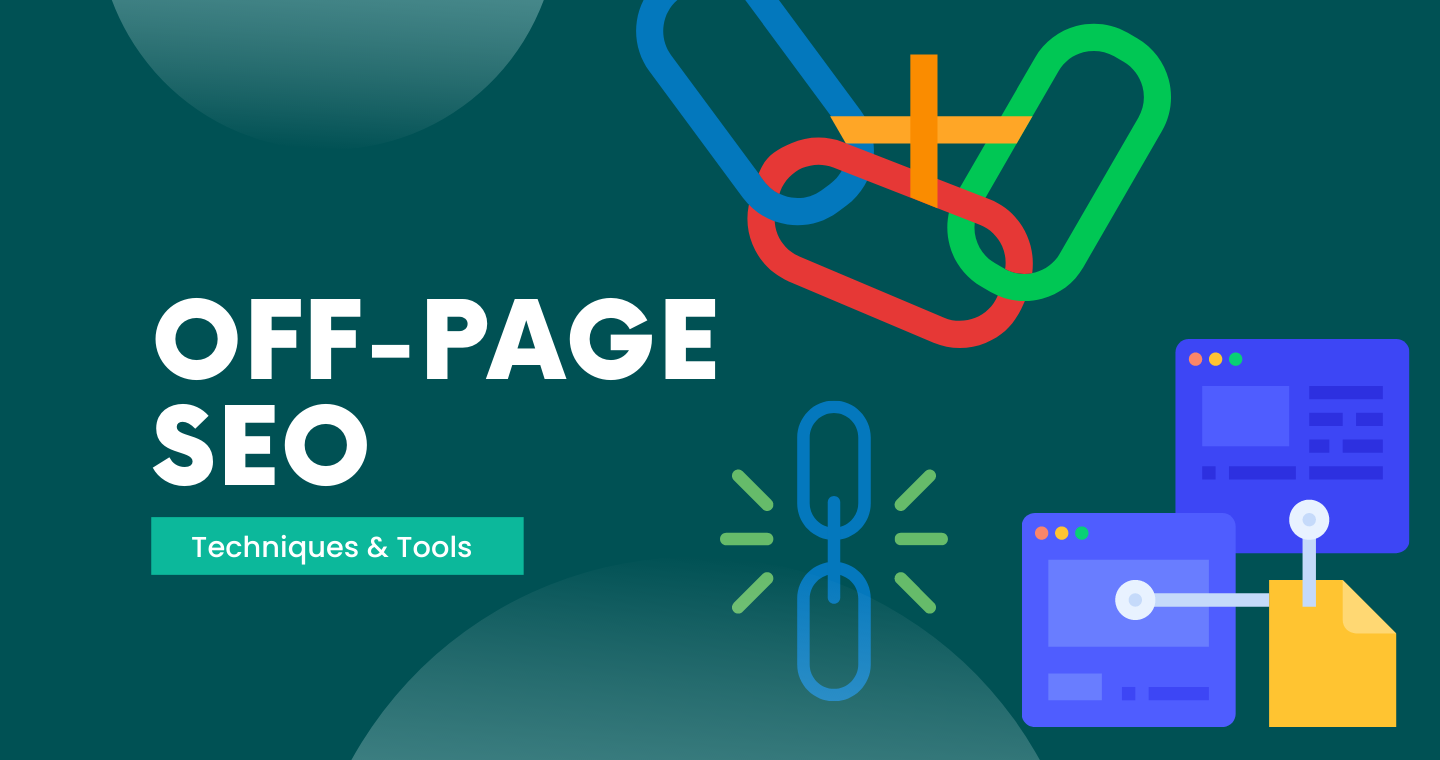
Most people think ranking on Google is just about fixing stuff on your site. You know, titles, keywords, speed… the usual. But that’s only half the game. The other half? It happens outside your website. Search engines don’t just look at your own pages. They also check if other people trust you. That’s where off-page SEO comes in. It’s not about editing your site. It’s more about what others say, share, or link back to.
What is Off-Page SEO?
Off-page SEO is basically everything you do away from your website that makes it look more trustworthy. Think of it like reputation building. If people talk about your brand, link to it, or even just mention it, Google notices. And honestly, that stuff matters a lot.
The big one here is backlinks. When another site links to you, it’s almost like a thumbs-up. But it’s not just links. Reviews, social media shares, guest posts, or even being active in a community all add up.
So yeah, off-page SEO is less about tweaking your own pages and more about building a name out there. The stronger your name, the more Google sees you as worth ranking.
Why Off-Page SEO Even Matters
Okay, so here’s the thing. You can have the prettiest website in the world. Fast, mobile-friendly, all that. But if nobody outside your site cares about it, search engines won’t either. Google’s like… “Cool site, but does anyone actually trust it?” That’s where off-page SEO comes in.
Backlinks, for example, are kind of like street cred. If a big site links to you, that’s basically them saying, “Yeah, these guys know what they’re talking about.” And trust me, Google pays attention.
It’s not just links, though. Reviews matter. Brand mentions matter. Even how much people share your stuff on socials can make a difference. Think of it as your online reputation score. The better it is, the easier it is to climb search results.
Bottom line? On-page SEO makes your site ready. Off-page SEO makes it respected. You need both to win.
The Big Players in Off-Page SEO
So, what actually counts as off-page SEO? Let’s break it down without the boring textbook vibes.
1. Backlinks
These are the big dogs. One solid backlink from a trusted site can do more than a hundred weak ones. Quality beats quantity every time.
2. Social Buzz
Yeah, Google says social signals don’t directly rank you, but let’s be real — if your stuff’s getting shared, it’s reaching more eyeballs, and some of those people might link back to you.
3. Brand Mentions
Even when a site doesn’t link, just mentioning your brand can help build authority. It’s like free PR that search engines notice.
4. Guest Posting
Still works, if you’re smart about it. No spammy stuff. Think “value-packed article on a legit site,” not “random blog farm.”
5. Reviews & Citations
If you’re local, reviews are gold. Positive feedback on Google or Yelp can boost trust big time.
Off-page SEO isn’t about tricks. It’s about building trust signals all over the internet that point back to you.
Off-Page SEO Mistakes You Should Avoid
Even with the best plans, it’s easy to slip up. Here are mistakes I see people make all the time:
1. Buying Cheap Backlinks
It looks tempting—$20 for 500 links. But those links usually come from spammy sites. Instead of helping, they drag your rankings down.
2. Ignoring Relevance
A fashion blog linking to a plumbing site? Google knows it doesn’t make sense. Links need to match your niche to carry weight.
3. Overdoing Anchor Text
Some people cram keywords into every backlink. That looks unnatural. Mix branded text, naked URLs, and generic anchors.
4. Forgetting About Reputation
If people are leaving bad reviews about your brand, backlinks alone won’t save you. Reputation management is part of off-page SEO.
The truth? Quality beats quantity every single time.
Measuring Your Off-Page SEO Success
Building links and boosting reputation is great. But how do you know it’s working? You track.
1. Domain Authority (DA) & Domain Rating (DR)
These numbers show how strong your site looks compared to others. Higher = better, but don’t obsess.
2. Referral Traffic
Check how many visitors are coming from other sites. If your backlinks bring no clicks, they’re not doing much.
3. Keyword Rankings
When good links land, your main keywords should start climbing in Google. Slow and steady growth is a win.
4. Brand Mentions
Are blogs, forums, or news sites talking about your business? Even without a link, mentions help build trust.
5. Conversion Impact
At the end of the day, more traffic means nothing if no one buys. Track leads and sales.
Off-page SEO isn’t just about numbers. It’s about building authority people and search engines can both see.
Quick Tips for SEO Beginners
- Choose simple keywords – Focus on one keyword per page.
- Use headings (H1, H2, H3) – Break content into clear sections.
- Write clear content – Short sentences, easy words.
- Add meta title + description – Keep them short and include your keyword.
- Make the site mobile-friendly – Test on your phone.
- Add alt text to images – Describe each image simply.
- Update content often – Fresh pages rank better.
- Check with Google Search Console – Free tool to track and fix issues.
Measuring SEO Success
Checking if SEO is really working isn’t as hard as people make it sound. The first thing most folks look at is traffic. If more people show up on your site from Google than last month, you’re heading in the right direction.
Rankings matter too. If your page was hiding on page three and now it’s closer to the top, you’ll probably see more clicks. Even small jumps can bring new visitors.
Still, traffic and rankings don’t mean much if nobody is taking action. You want to see visitors signing up, calling, or making a purchase. That’s where the real success shows up.
Backlinks are another clue. When other websites link to your page without you begging for it, that’s a good sign. Google notices, and it usually helps your site build more trust.
Conclusion
Look, SEO isn’t some quick magic trick. It takes time. Sometimes way more than you want.
At first, nothing really happens. You post, you tweak, and it feels dead quiet. That’s normal. Google just… waits.
But here’s the thing: if you keep at it, the changes start adding up. One blog post leads to another. A headline fix makes clicks go up. You don’t see it right away, but a few months in, the shift is real.
And yeah, you’ll get tempted to chase shortcuts. Don’t. Readers aren’t dumb, they want real answers. Keep it clear, keep it useful, and honestly, that’s what works.
So, take it easy. Keep moving. And one day you’ll check your traffic and think, “huh… it’s actually working.”





